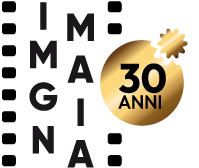A movie is created on set, so the biggest technical and productive effort is concentrated in this phase: students will have to solve all the problems related to the visual design (camera placement, fields, lens selection, lighting, color temperature …).
The film is the result of the collaboration between the workers; thus the operator or the Director of Photography must have maximum mastery of the technical means and maximum respect for the film that the director imagined, while still affecting the work with their own taste and style.
The course is divided in three phases:
First phase: study of state-of-the-art shooting techniques and study of cinematographic language.
Second phase: shooting practice with HD digital video camera.
Third phase: taking part in the shooting of the short films directed by the filmmaking course students.
The first phase is focused on achieving knowledge of the filming techniques; together with this, the students will also become familiar with the concepts of grammar and syntax of the film language (see also the filmmaking course program). In particular, the students will deal with the moving picture to address all issues related to shooting techniques, to visual continuity, to light and atmosphere creation, to visual and chromatic characterization, picture composition, camera movements etc.
The school recommends students to follow the filmmaking course as auditors; pupils must understand how a film is the result of co-operation between the professionals and the director, who has to coordinate the various divisions of specialists.
In the second phase the filming students, through practice, will acquire competence in the use of camera equipment and digital cameras, learning the skills needed to become a camera operator. They will also be able to get further exercise by filming the acting course students’ practice and rehearsals.
Finally, in the third phase, the pupils will take part in the shooting of the final short films by the filmmaking students – according to their availability and to the artistic harmony between the two.
[accordion][accordion_item title=’COURSE CALENDAR’]November 2015 – April 2016[/accordion_item]
[accordion_item title=’COURSE SCHEDULE’]Tuesdays 15.00-18.00[/accordion_item]
[accordion_item title=’TEACHER’]Roberto Galassini[/accordion_item]
[accordion_item title=’FEE’]Total cost €950, divided in a €200 inital fee and five monthly €150 fees (December-April), plus €100 for the member card (which grants access to all of the school’s courses as auditor)[/accordion_item][/accordion]
ALL COURSES ARE TAUGHT IN ITALIAN LANGUAGE
